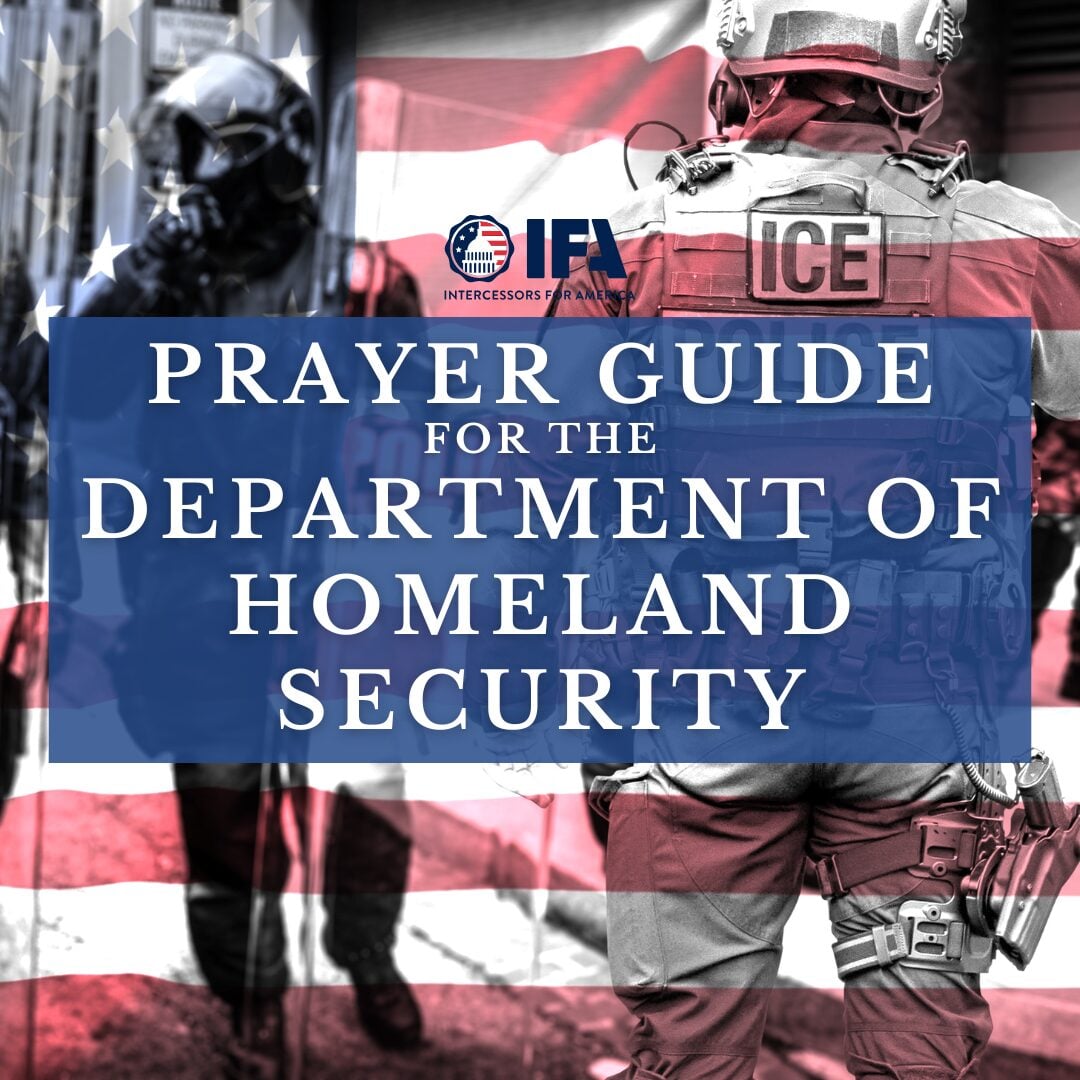Can We Really Trust the Bible?
Can We Really Trust the Bible?
On June 30, 2022, someone named Robert posted this comment on our ministry’s YouTube channel: “Why would anyone in the 21st century give a [expletive] what illiterate desert dwellers from 2000 years ago thought about anything?”
Connect with others in your state in prayer.
In writing this, he reflected the views of many people today, especially in the younger generation. Why on earth should I care about what this old, outmoded, outdated book has to say? What does it have to do with me?
Of course, the authors of the Bible were anything but “illiterate desert dwellers.” To this day, scholars are still trying to understand all the nuances of the brilliant Hebrew of Job (let alone plumb the philosophical depths of the book), while theologians have written thousands of books and articles debating the meaning of single verses in the writings of Paul. But who cares about facts? It’s convenient to bash the Bible and dismiss it out of hand. “I’ve got better things to do than read the Bible!”
I want to give you a fresh perspective on God’s Word. I want to invite you to get reacquainted with the most wonderful book that has ever been written.
Are you ready to come along?
In recent years, I’ve heard lots of people say, “You can’t trust the Bibles you read. They are translations of translations of translations.”
Is there any truth to this? Absolutely not.
Whether you’re reading an older English Bible (like the King James Version) or a modern English Bible (like the NIV or ESV or NASB), you’re reading a translation into English straight from biblical Hebrew, biblical Aramaic, or biblical Greek.
That’s it.
You are not reading a translation from Hebrew into Greek into Latin into German into English (or something like that). You are reading a translation straight from the biblical languages (namely, Hebrew and a little Aramaic for the Old Testament and Greek for the New Testament) into English. Everyone who knows anything about Bible translations knows this to be true, and the translators have spent decades studying the original languages and then many years producing their translations. So, let’s bury that myth about “translations from translations” once and for all.
“But,” you say, “I’ve heard of ancient translations of the Bible like the Septuagint, translating the Hebrew Old Testament into Greek, or the Vulgate, translating the whole Bible into Latin. And then scholars today use those versions, meaning, they use translations of translations. What about that?”
Well, you’re right and you’re wrong…
It is true that such translations exist, dating as far back as 250 years before the time of Jesus. And it is true that scholars use them to see how ancient readers understood the original text. In other words, when a scholar is translating the Hebrew Scriptures into English today, he will see how the Septuagint translated those same verses more than 2,000 years ago, seeking to understand the Hebrew as best as possible. Why not use all the tools you have? But then – and this is the key point – that scholar will go directly from the original language into the target language, in this case, English.
“But hang on,” you protest. “I understand what you’re saying about these scholars going straight from the biblical languages into the modern language they’re working with. But you keep talking about ‘the original Hebrew’ or the ‘original Greek,’ yet we don’t have any original copies of the Bible. We only have copies of copies of copies. So that undermines your whole argument.”
Actually, it’s true that we only have copies of copies of copies. It’s the same with virtually all the major books from the ancient world. But we must remember that the people copying books and verses of the Bible did so with the utmost seriousness, believing these to be sacred texts, even the very Word of God. It’s true, of course, that with so much interest in these texts, not every scribe was professionally trained or thoroughly meticulous. But there’s good news here too, since we have so many thousands of manuscripts to compare, sorting out the least accurate from the most accurate.
The more you dig into this, the more amazing it becomes.
That’s why, when the Dead Sea Scrolls were discovered in the late 1940s, scholars were amazed to see that among the Hebrew manuscripts found there, some of them dating back to as early as 150-100 years BC, some were identical to the text found in our Hebrew Bibles today virtually letter for letter.
But this should not surprise us. After all, if you look at a Hebrew Bible today, which is based on manuscripts that are roughly one thousand years old, you’ll see a note like this at the end of the Torah (also known as the Pentateuch, referring to the first five books of the Bible). It lists the total number of verses in the Torah, then the middle verse. Then the total number of words in the Torah, then the middle word, then the total number of letters in the Torah – yes, letters.
This means that, upon finishing his work of copying out the Torah, the scribe would have to go back and count every verse, every word, and every letter. (How many times do you have to count something like that before you’re sure you counted correctly?) And what happens if your total deviates by one single letter? You cannot use the manuscript. It is considered defective. Talk about a painstaking job!
It is true that there are some verses in the Bible that we find troubling today, such as the command to drive out (or kill) the Canaanites, a subject I have addressed at length in other books. For the moment, let me just say that there are explanations that make good sense – and I mean good moral sense.
But here, I want to focus on another subject. What kind of morality does the Bible put forth? How does God call us to live?
Let’s start with the Ten Commandments. If you’ve forgotten them or are not familiar with them, I’ll print them here in full:
And God spoke all these words:
“I am the LORD your God, who brought you out of Egypt, out of the land of slavery.
“You shall have no other gods before me.
“You shall not make for yourself an image in the form of anything in heaven above or on the earth beneath or in the waters below. You shall not bow down to them or worship them; for I, the LORD your God, am a jealous God, punishing the children for the sin of the parents to the third and fourth generation of those who hate me, but showing love to a thousand generations of those who love me and keep my commandments.
“You shall not misuse the name of the LORD your God, for the LORD will not hold anyone guiltless who misuses his name.
“Remember the Sabbath day by keeping it holy. Six days you shall labor and do all your work, but the seventh day is a sabbath to the LORD your God. On it you shall not do any work, neither you, nor your son or daughter, nor your male or female servant, nor your animals, nor any foreigner residing in your towns. For in six days the LORD made the heavens and the earth, the sea, and all that is in them, but he rested on the seventh day. Therefore the LORD blessed the Sabbath day and made it holy.
“Honor your father and your mother, so that you may live long in the land the LORD your God is giving you.
“You shall not murder.
“You shall not commit adultery.
“You shall not steal.
“You shall not give false testimony against your neighbor.
“You shall not covet your neighbor’s house. You shall not covet your neighbor’s wife, or his male or female servant, his ox or donkey, or anything that belongs to your neighbor.” (Exodus 20:1–17)
Now, ask yourself this question: If the whole world lived by these words, would the world be a better place?
A safer place? A healthier place? A more moral place? Would it be easier for you to raise your kids in an environment like this?
Would there be less crime? Would marriages be stronger? Would people be more at peace with themselves and one another?
The answer is obviously yes – unless you think that more murder and more adultery and more theft and more lying and more dishonoring of parents and more covetousness and more workaholism and more worship of false gods would make the world a better place. Yet it is these Ten Commandments which lay the moral foundation of the rest of the Old Testament.
Perhaps the Bible has some divine wisdom after all.
What did you think of this article? Share your thoughts and prayers below.
(Used with permission. By Dr. Michael L. Brown From AskDrBrown. Photo Credit: Patrick Fore on Unsplash)
Partner with Us
Intercessors for America is the trusted resource for millions of people across the United States committed to praying for our nation. If you have benefited from IFA's resources and community, please consider joining us as a monthly support partner. As a 501(c)3 organization, it's through your support that all this possible.


We use cookies to ensure that we give you the best experience on our website. If you continue to use this site we will assume that you are happy with it. Privacy Policy





Comments
Thank you, Dr Brown, for this insightful and informative article. Very encouraging to me!